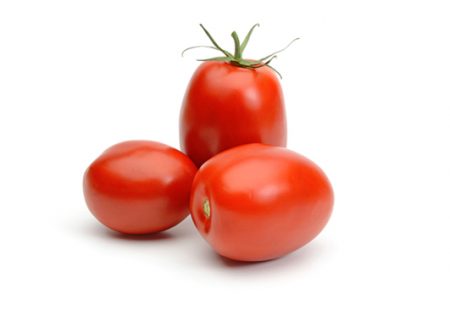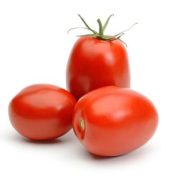Making culinary dreams come true in Charleston sometimes means being an itinerant chef (Charleston City Paper)
 In 2007, Los Angeles Chef Ludo Lefebvre introduced Ludo Bites, a series of temporary eateries that opened randomly across the city, lasted a few days or weeks, and then disappeared. Over the next decade, this trend spread, and a new term — as well as a culinary movement — was born. Pop-up restaurants, as they’ve come to be known, are temporary events hosted in spaces ranging from private homes and defunct arcades to existing bars and eateries. Typically focused on a single concept or cuisine, the food offered locally is generally made with the best products and a high level of skill.
In 2007, Los Angeles Chef Ludo Lefebvre introduced Ludo Bites, a series of temporary eateries that opened randomly across the city, lasted a few days or weeks, and then disappeared. Over the next decade, this trend spread, and a new term — as well as a culinary movement — was born. Pop-up restaurants, as they’ve come to be known, are temporary events hosted in spaces ranging from private homes and defunct arcades to existing bars and eateries. Typically focused on a single concept or cuisine, the food offered locally is generally made with the best products and a high level of skill.
Nonetheless, while Chef Lefebvre’s itinerant venture was a triumph, success is not guaranteed and the risks can outweigh the rewards. “Sometimes pop-ups are a gamble,” noted Geechie Chef Benjamin Dennis says. “You’ve invested in the food, but you don’t know if people will come out. Will the community come? Are they going to support it?”
If money woes weren’t enough, there are also challenges with makeshift kitchens and the inherently nomadic working conditions. “The itinerant life is rough,” emphasizes Chef David Schuttenberg of Kwei Fei, a Sichuan pop-up he operates primarily out of The Daily. “Moving a restaurant around in the back of a 2002 Volkswagen Jetta is not sensible, especially at my age.”
It seems there may also be a correlation between adrenaline and a sense of humor, as area pop-up chefs clearly thrive on both. “Before every pop-up I usually have a panic attack, because I know what’s about to happen,” laughs Chef Shuai Wang of Short Grain, reflecting on the process.
That stated, and considering the very real challenges of managing money, marketing, and venue, while still creating a mouthwatering menu, what drives local chefs to run pop-up restaurants? The reasons, it turns out, are as diverse as the cuisines being offered.
A common driver is simple economics. “When I first did pop-ups it was a survival thing,” says Dennis. “It was to build my name and pay bills and make money.”
“I think it’s safe to say that shortly after moving here, well, shit hit the fan,” echoed Jeffrey Stoneberger of 2Nixons. “I needed income. I needed something that paid, so I did what I had to do. I jumped in. I didn’t expect 150 people to show up. I’m standing there cooking by myself and completely overwhelmed, but everything just sort of magically worked.”
For others, that initial impulse was driven by finding a way to cook one’s own food, showcase a different type of cuisine, or even reconnect with one’s original joy in cooking. “We started Pigeonhole as a creative outlet for Philip (Powers) and me,” says Chef Ray England of his Jewish deli pop-up. “Philip does barbecue everything right now, but he has a diverse background. I moved here from L.A. where I was involved with a range of cuisines, but I’m doing Mexican food and only that. We needed a way to express ourselves more.”
“I moved to Charleston to work on the Wise Buck project,” Schuttenberg says. “When that fell apart, I took the Fish job, and that didn’t work out either. I’d been here two years and I now had, essentially, two failures in my career. That had never happened to me before, so I had to ask myself, ‘What am I missing?’ Eventually, I looked back to the period I was inspired as a chef, and I wanted to try to recapture the feeling of being involved in something fun and obnoxious, but still special. Popping up allows me to do that.”
The itinerant lifestyle also offers a way for chefs to explore a new food concept or even satisfy a nostalgic craving.
“The Jewish deli thing started in part because I really miss Russ & Daughters in New York and Wexlers in L.A.,” says England of Pigeonhole. “I miss being able to get a great bagel. You just can’t find that here.”
“The one thing I really missed about eating in New York, and what really seemed to be a glaring hole in the market, was Asian food,” echoed Schuttenberg. “And I really, really missed Sichuan food especially. I love to take an elevated proper French technique and apply it to street food, peasant food.”
“A lot of it is actually just secret menu testing for future endeavors,” Wang adds. “I have so many crazy ideas for dishes that I just want to share with everyone. At the end of the day, pop-up chefs like us are just madly in love with what we do, so much so, we want to share that with everyone. We might not have restaurant spaces to do that in (or at least yet), but we’d be damned if that stopped us.”
Regardless of the impetus, it’s clear a key element to the success of a local pop-up restaurant depends on the support of the populace, something Charleston emphatically provides. “You can’t really get good dim sum around here,” says England, with respect to Short Grain. “I remember when Shuai did that pop-up at Stems & Skins. It was insane. I couldn’t believe the line. I got there before he opened, and I still had to wait an hour to get in.”
Moreover, due to a likely mix of loyalty, respect, and hunger, the culinary community has shown up in spades.
“We did a pop-up at Proof on the 6th when it was icy and terrible and no one was coming downtown from any place that wasn’t downtown,” recalls Stoneberger. “But a bunch of guys — Rob from Sparrow, Vinson from Zero George, Michael Toscano — they all came in with very little notice. It’s a very supportive community.”
“The F&B community shows up en masse,” Schuttenberg also noted. “We stay open until midnight hoping to serve them, and we’ve seen a lot of people that I really respect in here. There’s nothing better than that. The whole point of this was trying to get back to something I loved. It’s great to be able to share that.”
England shared a similar sentiment about the Kwei Fei pop-ups, noting, “I was really surprised when Dave told me he was going to do Sichuan, because they’re extremely bold flavors, and I didn’t know how it would go over. But I’ve eaten there probably five or six times now, and there are a ton of foodie people in there supporting him. I walk in, and I see Phil from Bar Normandy… And basically, I know everyone in the room.”
A potentially temporary food experience often available only to those in the know, pop-up restaurants are in part popular due to the inherent scarcity itself. But for those who keep returning, it seems the most compelling thing for both the chef and his or her guest might be the experience itself.
“It’s the ability to pour you an $8 chenin blanc that is the most acid-forward, crushing, grapefruit and pineapple wine you’ve ever had, and then to celebrate that with this insanely citrus-forward salad that has crunchy octopus in it and these overly soaked breadcrumb things in it,” enthused Stoneberger. “You can maybe get that in a restaurant, but they’re doing 150 covers. When you get something in a pop-up context it was made for you. Specifically for you. That’s why pop-ups are cool.”






